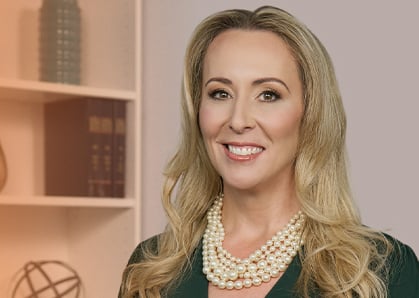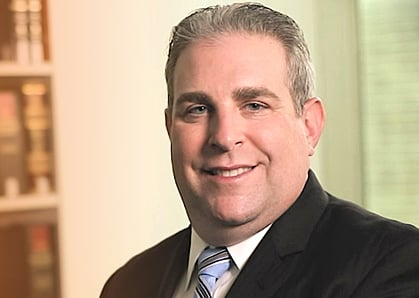Florida Patent Pilot Program Sunsets - How Did it Go?
By Melissa C. Pallett-Vasquez and Scott N. Wagner
In 2011, Congress launched the Patent Pilot Program. This program allows a small number of judges within a district court to take on the lion's share of patent cases within the district. The hope is that judges will develop an expertise in patent cases, promoting efficiency within the judicial system. The Southern District of Florida was one of 14 district courts across the country selected to take part in this program. Under the Pilot Program, a judge to whom a patent case is assigned can decline to accept the case, at which point it is randomly reassigned to one of the judges specifically designated to participate in the program.
In the Southern District of Florida, Judges Donald Middlebrooks, Michael Moore and Patricia Seitz were appointed to the patent panel. During the three years the program was in force, the number of patent cases filed in the district skyrocketed. Yet it all came to a sudden end in June, when the former chief judge of the Southern District, Federico Moreno, signed an order terminating the court’s participation in the program as of July 7.
What happened? Judge Moreno retired. Michael Moore, who took over as chief judge of the Southern District of Florida that same month, and was one of the judges involved in the Pilot Program, told Corporate Counsel affiliate the Daily Business Review that the program was dropped because a lot of judges were not referring cases. Only one-third of patent cases filed in the districts involved in the Pilot Program were transferred to the designated patent judges. The experience in Florida apparently was consistent with the program in other states.
Moore also mentioned another reason why the program was terminated, one that’s been in the news repeatedly: patent trolls. A patent troll purchases and enforces patent rights against accused infringers, but does not actually supply any services or manufacture any products based on the patents. Infringement cases brought by patent trolls certainly have been on the rise in South Florida, and across the nation. As a result, as Moore pointed out in the DBR article, the patent cases that were landing in the courts were not nuanced battles between competitors, but rather cases brought by patent trolls. And the judges decided that they could handle these themselves.
While it may be that ending the Pilot Program could result in a slight reduction in cases brought by patent trolls in the jurisdiction, its end by no means signals the end of patent litigation in South Florida. To the contrary, the Southern District of Florida is an attractive venue for plaintiffs prosecuting patent claims even without the designated panel of judges, primarily due to the speed with which a case is expected to get to trial. Under the local rules, all cases in the district must be assigned to one of three “case tracks.” Even the most complex cases are set on an initial track that limits discovery to a maximum of 365 days, with the aim of having them tried within 16 months of the initial scheduling order.
The Southern District of Florida does not have special rules governing patent cases, as do many other district courts around the country. Indeed, it was one of only two districts participating in the Patent Pilot Program not to adopt patent-specific rules. As a result, plaintiffs often face fewer substantive and procedural hurdles. For example, because there are no special patent rules, claim construction hearings, more commonly known as Markman hearings, are not set as a matter of course in the Southern District of Florida. Such hearings are permitted, but they are not required, and as a result many plaintiffs are able to avoid this additional hurdle until the case progresses. This is particularly attractive to patent trolls.
Many judges in the Southern District of Florida have set procedures for expediting discovery disputes. For example, rather than requiring full briefing on discovery disputes, many magistrate judges hold “informal” discovery hearings that can be heard and ruled upon quickly and without the often protracted discovery briefing. As a result, even with extensions, the Southern District of Florida offers patent litigants a high likelihood of getting to trial quickly.
Typically, a quick trial is thought to inure to the benefit of a plaintiff prosecuting patent claims by putting pressure on a defendant to settle in the face of an impending trial deadline. Yet, in the Southern District of Florida, would-be defendants can look to shift the roles by taking advantage of the docket speed and file for a declaratory judgment. A relatively expedient end to litigation often is welcomed by in-house corporate counsel, whose companies will look for definitive answers that can substantially impact future business plans.
Thanks to the permissive jurisdictional rules of 28 U.S.C. §1400, plaintiffs in patent cases have a large amount of leeway in choosing where to file their claims. Patent cases can be filed in any jurisdiction in which an allegedly infringing product is marketed or sold, and the defendant maintains some business operations. This can afford would-be plaintiffs the ability to seek out jurisdictions they believe are friendly, either due to favorable precedent or the speed with which a case will get to trial.
While the Pilot Program has ended and the court will no longer have designated “patent judges,” we expect that patent plaintiffs will continue to view South Florida as an attractive venue to file their cases, particularly in view of the institutional knowledge that has already been gained by the judges as a result of the recent influx of patent cases.
This article is reprinted from the October 06, 2014 issue of Corporate Counsel. © 2014 ALM Media Properties, LLC. Further duplication without permission is prohibited. All rights reserved.

